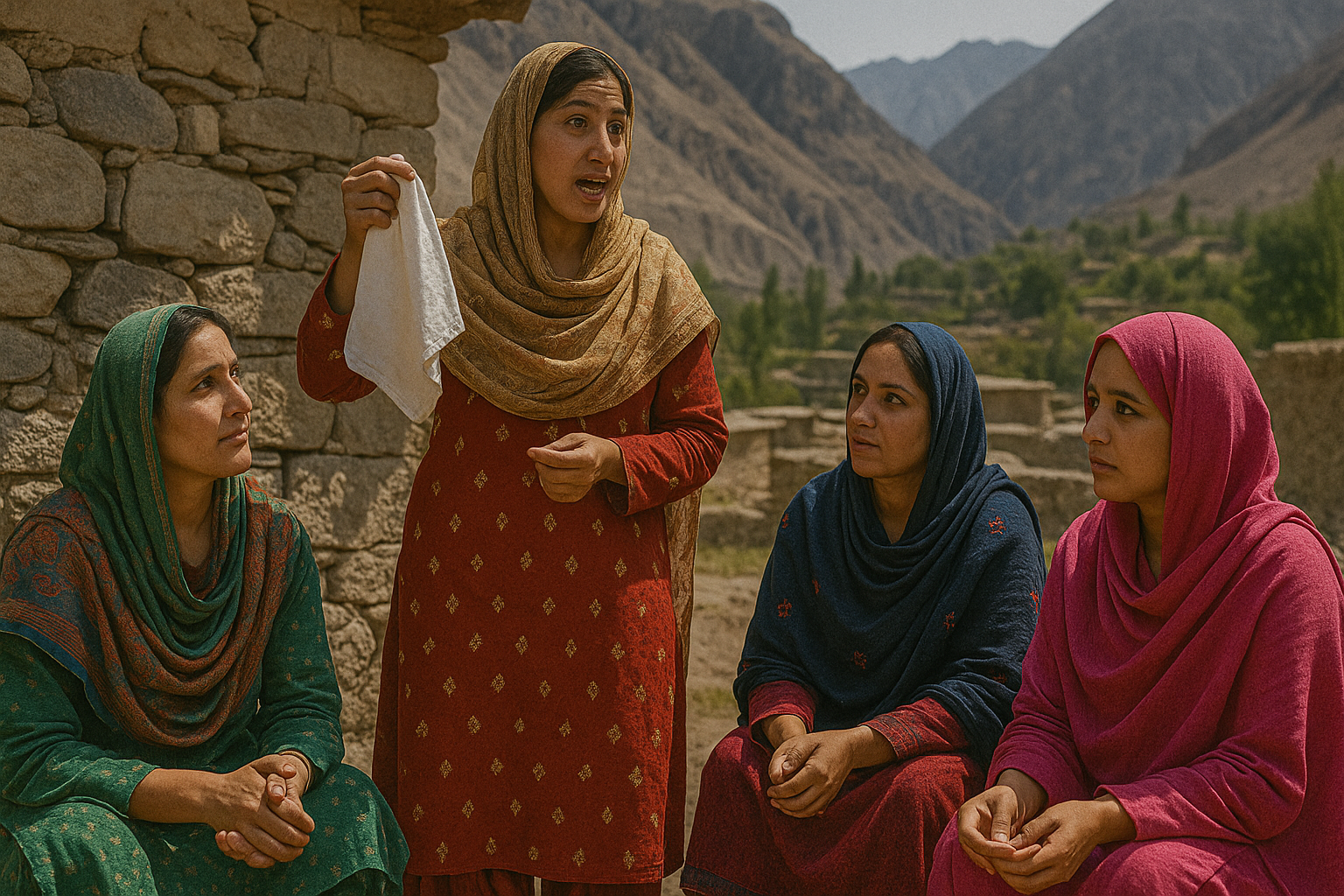From Stigma to Strength: How Culture Shapes Menstrual Practices in Northern Pakistan
A study of Kho and Kalash women in Pakistan’s Chitral Valley reveals significant disparities in menstrual knowledge and hygiene, shaped by culture, education, and income. Kalash women's use of the bashalini promotes better hygiene practices despite limited formal education.

A compelling new study conducted by researchers from the University of Chitral, Rawalpindi Medical University, and Quaid-i-Azam University sheds light on how culture, education, and economic disparity influence menstrual health knowledge and hygiene practices among the Kho Muslim majority and the Kalash minority in Pakistan’s remote Chitral Valley. The cross-sectional survey, carried out between May and September 2023, analyzed the experiences of 520 women, 415 from the Kho group and 105 from the Kalash, to explore how deeply traditions and social norms shape women’s knowledge, beliefs, and behaviors surrounding menstruation.
Bashalini: A Cultural Practice with Health Benefits
At the core of the Kalash menstrual experience is the bashalini, a communal menstruation hut where women are required to isolate during their periods due to cultural perceptions of impurity, referred to as pragata. Although rooted in segregation, the bashalini paradoxically offers a space for learning and support. Kalash girls assist menstruating women from a young age and thus gain early knowledge about menstruation. This results in 100% of Kalash respondents reporting awareness of menstruation before menarche, compared to just 70% among the Kho.
This early exposure appears to significantly ease the emotional transition into menstruation. While 76% of Kho girls reported fear during their first period, none of the Kalash girls did. Instead, Kalash respondents reported feelings of irritation or depression, emotional reactions possibly linked to their isolation but free from fear and confusion. The bashalini, though rooted in the belief of impurity, inadvertently serves as a supportive structure for menstrual education, something absent in Kho households.
Knowledge Gaps and Conflicting Beliefs
Despite the protective environment of the bashalini, misconceptions still thrive. Among the Kalash, 97% viewed menstruation as a process to remove impure blood, reflecting their cultural beliefs, whereas 62% of Kho women correctly identified it as a biological process. A majority of Kho respondents (71%) were able to correctly identify the uterus as the source of menstrual blood, while only 34% of Kalash respondents could do the same. This variation reflects differences in both cultural frameworks and access to education.
Education emerged as a decisive factor in improving menstrual knowledge. Women with higher education had nearly four times better understanding than those who were illiterate, and daughters of literate mothers were also significantly more informed. However, despite generally having higher education levels, Kho women lagged in menstrual hygiene practices, suggesting that cultural factors can override formal education in shaping behavior.
Hygiene Practices: Kalash Women Lead the Way
In terms of menstrual hygiene, Kalash women overwhelmingly outperformed their Kho counterparts. About 90% of Kalash respondents were found to practice good hygiene, compared to just 46% of Kho women. This was largely due to the privacy and structure provided by the bashalini, which allowed for practices like drying reusable cloths in open sunlight, an important step in maintaining hygiene. In contrast, Kho women, who did not have dedicated spaces, often dried materials in concealed and less sanitary areas.
Sanitary material use was dictated largely by economic status. While only 21% of all respondents used sanitary pads exclusively, a large number relied on cloth (36%) or a combination of pads and cloth (34%). Women in higher-income households (earning over PKR 100,000 per month) had far greater access to pads, with 72% using them regularly. Financial constraints clearly restricted many women’s ability to choose hygienic options, despite their awareness of the benefits.
Environmental and Educational Implications
Improper disposal of menstrual waste remains a pressing issue. While 82% of participants wrapped used materials in plastic bags, over half of those who burned them did so in open spaces, and 25% admitted to discarding them in rivers or wilderness. These practices not only endanger public health but also pose serious threats to the fragile environment of Chitral. With limited access to formal waste disposal systems in the region, there is an urgent need for infrastructure that supports safe and environmentally friendly practices.
The study also identified troubling gaps in sources of information. Friends (44%), mass media (21%), and sisters (13%) were the primary educators before menarche, while mothers played a minimal role, only 5% among Kho and 29% among Kalash. This lack of maternal involvement is concerning, given that daughters of literate mothers consistently demonstrate better knowledge and practices.
Rethinking Menstrual Health Policy Through a Cultural Lens
Despite its limitations, such as reliance on self-reported data and a smaller sample size for the Kalash, the study offers critical insights into menstrual health in under-researched populations. It highlights the need for targeted, culturally sensitive interventions that consider both traditional practices and modern education. By recognizing the dual nature of cultural traditions like the bashalini as both restrictive and educational, policymakers and health educators can design more effective programs.
Recommendations include integrating menstrual health education into school curricula, making sanitary products more affordable, and providing private washing and waste disposal facilities. Involving families and communities, especially mothers, in menstrual education can also help close the knowledge gap and reduce stigma. The findings from Chitral offer a valuable model for addressing menstrual health challenges in other isolated and culturally diverse regions across South Asia.
- FIRST PUBLISHED IN:
- Devdiscourse
ALSO READ
Heroic Foreman Leads Bold Rescue from Singapore Sinkhole
Tragedy Unfolds: Two Students Missing at Bherukho Waterfall
Trade Talks Tackle U.S.-China Economic Standoff in Stockholm
U.S. and China Resume High-Stakes Trade Talks in Stockholm
High-Stakes Trade Talks: US and China Negotiations Move to Stockholm










